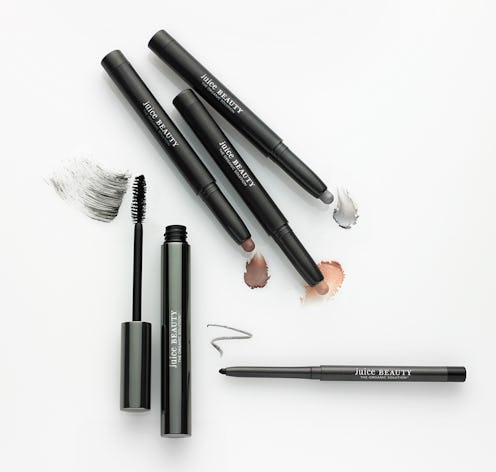While it’s trendy to go organic in every way possible, the craze is supported by a legitimate backbone thanks to a myriad of health benefits. That of course extends to beauty as well—and if you’ve ever had questions about switching to a cleaner routine, Karen Behnke, founder of Juice Beauty, has the answers. Here, we sit down with the wellness expert, whose ethos focuses on creating a great product that delivers real, visible results without resorting to toxic ingredients (a mantra we fully support—so much so that we chose the brand’s outstanding Green Apple SPF 15 Brightening Moisturizer for the summer Box of Style). Read on for how Karen got her start in the business, plus why you should care about going green with your beauty and which ingredients you should avoid.
Get To Know Juice Beauty
Karen spent 20 years in the health and wellness field before she got the idea of Juice Beauty. It wasn't until she became pregnant with her first child at 40 that she started to really set her sights on the cosmetics industry.
"I couldn’t believe the amount of potentially harmful ingredients found in both high-end and drugstore beauty products. As my research continued, I was alarmed to find out that these products contained ingredients that had been banned from our food," she says.
"Knowing that our skin absorbs over 60% of what is placed on it and that our bodies are exposed to toxic ingredients, I was determined to radically transform the chemistry of beauty. I set out to grow the Juice Beauty brand with a mission to create luxurious formulations made with certified organic ingredients that perform just as well if not better than conventional chemical beauty."
Karen prides herself on delivering a truly quality product—one that adheres to government standards for organic products and delivers actual results.
"Juice Beauty is still one of the very few organic brands that meet government regulations of 70% or greater certified organic ingredients. Instead of fillers or added water, our products contain an organic proprietary blend of botanical juice base (aloe, jojoba, grapeseed, shea, citrus juices) with added powerful age-defying or blemish-clearing ingredients. Formulated for efficacy and backed by clinically validated results, they're packed with nutrients so every antioxidant-rich drop feeds your skin."
Karen shares that not only can organic products prove more effective, they can also help make you a more conscious consumer.
"Many conventional and some natural beauty products start with a base of petroleum glycols (butylene or propylene glycols—like petroleum jelly products) that can be laced with potentially harmful chemicals. Our products, on the other hand, abide by the strictest California Organic Product Act (COPA) regulations.
Regulations aside, research has shown that organically farmed materials have approximately a 30% greater antioxidant level than conventionally farmed crops. If that alone isn't convincing enough, organic farming practices are also more environmentally friendly. This means as a consumer, when you choose to use organic products, you are making a conscious decision to support the health of our planet."
She also notes that the organic movement is the way of the future, especially as people become more aware of and committed to product ingredients.
"We are finding that consumers are better educating themselves and looking to brands for transparency in their sourcing of ingredients and operational processes. My hope is that one day the words non-toxic and no parabens won't be good enough for the discerning consumer. This is one of the many reasons we continue to partner with non-profit research and advocacy organizations like the Environmental Working Group and the Breast Cancer Fund to ensure we stay relevant with modern science and continue to deliver innovation."
While the Juice Beauty website lists more than 30 ingredients the brand is committed to avoiding, Karen cites a few key points to look out for if you're just starting your organic journey.
- Synthetic fragrances and artificial dyes (due to concerns for endocrine disruption)
- Parabens (because of their link to breast cancer)
- Petroleum-based ingredients (for their association with dioxane and other potentially harmful chemicals)
